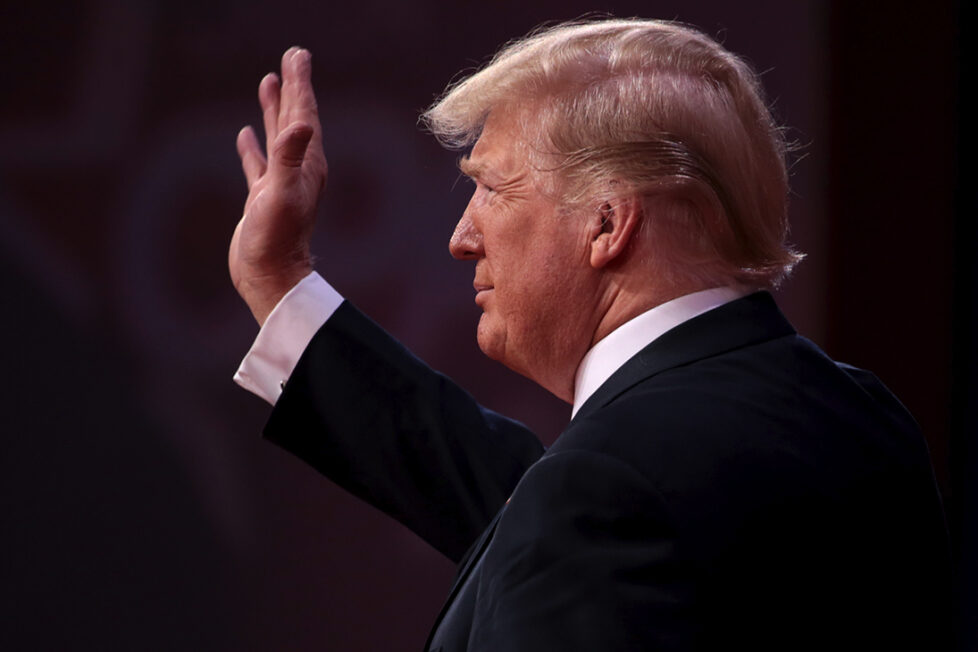Trump and allies plan to expand presidential power in potential 2025 White House return


By: Stacy M. Brown / NNPA
Former President Donald Trump and his allies are reportedly laying the groundwork for a significant expansion of presidential authority if he returns to the White House in 2025.
According to details published in the New York Times, the proposed changes aim to reshape the executive branch’s structure, directly centralizing greater authority into Trump’s hands.
The Times cited campaign policy proposals and interviews with close associates.
The newspaper said Trump’s ambitions extend beyond recent statements about ordering a criminal investigation into his political rival, President Joe Biden, indicating a willingness to end the long-standing norm of Justice Department independence from White House political influence.
The Trump plan includes bringing independent agencies like the Federal Communications Commission (FCC) and the Federal Trade Commission (FTC) under direct presidential control.
These agencies, responsible for regulating television and internet companies and enforcing consumer protection rules, would be subject to Trump’s oversight if his vision became a reality.
Additionally, Trump plans to revive the practice of “impounding” funds, refusing to spend money that Congress has allocated for programs he opposes.
[SCROLL BREAK!!! Bayou Beat News can also be found in PRINT at a store near you. Click the link below to check out our E-Edition!]
This tactic, previously banned under President Richard Nixon, could be resurrected to grant the president more control over the budgetary process.
Moreover, Trump reportedly intends to strip employment protections from tens of thousands of career civil servants, making it easier to replace individuals he perceives as obstacles to his agenda.
The report stated that this move could lead to a significant reshuffling of personnel within the government.
Trump and his advisers are not shying away from discussing their intentions openly.
They have been proclaiming their agenda during rallies and on the campaign website, and they’ve described their plans in white papers and public discussions.
Russell T. Vought, who previously ran the Office of Management and Budget in the Trump administration, explained their strategy to the Times.
“What we’re trying to do is identify the pockets of independence and seize them,” he said.
The underpinning legal theory behind their efforts is known as the “unitary executive theory,” which rejects the traditional view of the government as composed of three separate branches with checks and balances.
Instead, the theory argues that the Constitution grants the president complete control of the executive branch, thus limiting Congress’s ability to empower agency heads or restrict the president’s authority.
If Trump were to secure a second term, his expansive vision of power could come to fruition, considering he now benefits from a well-funded policymaking infrastructure.
Former officials who remained loyal to him after he attempted to overturn the 2020 election and the January 6, 2021, Capitol attack are reportedly leading this well-organized effort.
One specific idea identified by the Times involves bringing independent agencies more firmly under the president’s control.
These agencies were established within the executive branch to operate with a degree of autonomy, but Trump’s plans seek to change that.
Another proposal involves transforming the civil service and eliminating employment protections for career officials deemed involved in policymaking.
“We will demolish the deep state,” Trump said at a Michigan rally. “We will expel the warmongers from our government. We will drive out the globalists. We will cast out the communists, Marxists, and fascists. And we will throw off the sick political class that hates our country.”
